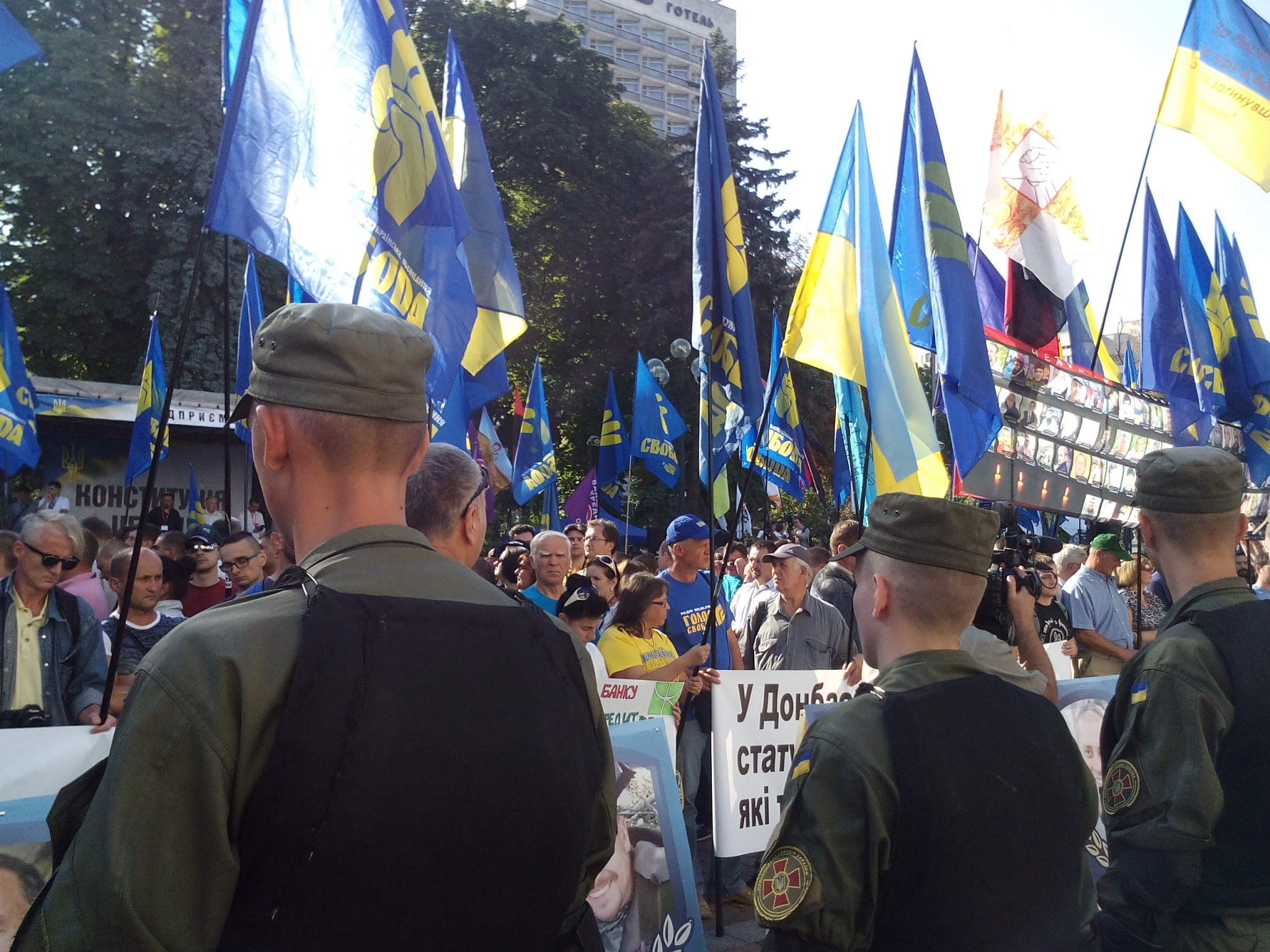In the early 1990s, the Russian Federation faced what came to be known as “a parade of sovereignties” with various regions and republics declaring their sovereignty and demanding treaty relations with Moscow. That promoted first decentralization and a federation treaty and then, in reaction, the construction of an even more centralized state.
Now, Tetyana Ivzhenko, a Kyiv correspondent of the Russian “Nezavisimaya gazeta,” says that that country is threatened by a new “parade of sovereignties,” a trend that Moscow might exploit to weaken Kyiv at least in the short term. But as she doesn’t say, that could have longer term results much like those in Russia.
Tensions between Ukraine’s regions and the center have only intensified in recent times, Ivzhenko says, even though many in the regions have been unwilling to press the case out of fears that this would legitimate the status of Russian-occupied regions in the east and weaken the hand of Kyiv against Moscow.
But because plans for moves toward decentralization appear to be on hold, ever more regions are appealing to the center for the creation of special arrangements between each of them and Kyiv. The elected legislators in Zhitomir and Kirovohrad oblasts took this step earlier; now, this week, those in Odesa oblast have done the same.
According to a source in Kyiv, Ivzhenko says, “the identical appeals to the Ukrainian authorities from various oblasts are connected with the start of the process of decentralization,” one that has already given the regions partial financial flexibility given that they now retain some of the tax money they collect rather than transfer all of it to Kyiv and then get money back.
But this system requires further development, the source says, because there are conflicts between regional deputies who are elected by the population and governors who are appointed by Kyiv. The two do not agree in many instances about how the tax monies they now control should be spent.
The constitutional reform on offer in Ukraine's Verkhovna Rada would do away with the current “’dual power
’” in the regions by eliminating the office of governor and creating prefects instead, who would ensure that federal laws were implemented but would not have the power to block the actions of the oblast assemblies.
But this proposal appears dead in the water in the national assembly because the 300 deputies needed to pass it can’t be found since many Ukrainian politicians consider that this would open the way for “’a special status’” for the so-called Donetsk and Luhansk “peoples republics” in the east [territories occupied by Russia's hybrid military force - Ed.].
Ihor Koliushko, the head of Kyiv's Centre of Policy and Legal Reform, says that current law does not allow for “treaty relations between the central authorities and the oblast organs” but that “administrative agreements are another matter” and that even now such agreements could grow in number and importance.
Such a scenario is perhaps more likely, Koliushko suggests, given that the Moscow-controlled "DNR" and "LNR" have been insisting on treaty relations with Kyiv, something that would transform the current unitary Ukrainian state into a confederation rather than a federal one.
Another Kyiv analyst, Oleksii Leshchenko, the vice president of the Gorshenin Institute, is convinced, the “Nezavisimaya gazeta
” journalist writes, that “citizens of Ukraine will oppose ‘a parade of sovereignties.’” He cites a poll in which the overwhelming majority of Ukrainians support decentralization but oppose “’special statuses’” for this or that region.
The opposition in the Verkhovna Rada has proposed having elected governors and creating a mechanism of treaty relations between each of them and the center. That doesn’t appear to be going anywhere in Kyiv, but it does open the way for more meddling by Moscow from below.
As in so many areas, Russian officials are drawing on their own past to come up with ideas on how to promote Moscow’s goals in the post-Soviet republics. They remember how the parade of sovereignties weakened Russia in the early 1990s and would be pleased to see that happen in Ukraine and elsewhere.
But what they have clearly forgotten is that it was precisely the parade of sovereignties that caused the pendulum to swing in the opposite direction, toward a state more unitary and centralized than it had even been before. If, as often happens, they overplay their hand in Ukraine, they could easily produce the same outcome there, yielding another defeat for Moscow.
Related:
- Moscow-forced decentralization of Ukraine seen involving real risks
- Ukrainian MP Hanna Hopko on the controversial decentralization vote
- Ukraine's decentralization and Donbas "special status": what you need to know
- Russia 'for first time in its history' has lost its monopoly on the Russian language, Zhadan says

